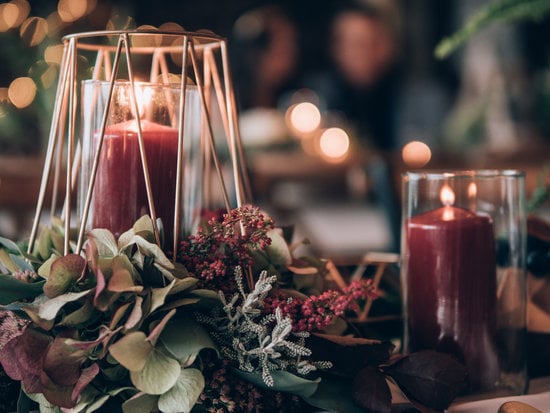Wondering whether the wedding officiant can be a witness at your wedding ceremony? The presence of a witness is a crucial legal requirement for the validity of a marriage, and understanding the role of the officiant in fulfilling this obligation is essential. In this article, we will explore the significance of having a witness at a wedding ceremony and examine the specific regulations regarding the eligibility of a wedding officiant to serve as a witness.
The presence of witnesses at a wedding ceremony holds significant legal importance in ensuring that the marriage is valid and legally binding. In addition to the couple exchanging vows, having at least one witness present is typically required to attest to the authenticity of the marriage. This requirement underscores the importance of understanding who can fulfill the role of a witness, particularly in relation to the officiant’s responsibilities.
As we delve into this topic, it’s important to consider not only the legal requirements for having a witness at a wedding but also how these requirements intersect with the duties of a wedding officiant. Understanding whether an officiant can serve as a witness and any potential conflicts of interest that may arise are crucial aspects to consider when planning for your special day.
Let’s explore these nuances further to ensure that all necessary steps are taken for your marriage to be legally recognized.
Legal Requirements
When it comes to getting married, having a witness present is often a legal requirement to ensure that the marriage is valid. The witness serves as an official observer to confirm that the marriage ceremony took place and that all parties involved consented to the union. While individuals often choose family members or close friends to serve as witnesses, there may be instances where couples wonder if the wedding officiant can also act in this capacity.
The legal requirements for a witness at a wedding can vary depending on the jurisdiction, but in general, most states require at least one witness to sign the marriage license or certificate. In some states, there may be specific regulations regarding who is eligible to serve as a witness. For example, certain states may have restrictions on whether the officiant who conducted the ceremony can also act as a witness.
In some cases, state laws allow for the wedding officiant to act as a witness. However, it is essential for couples to familiarize themselves with their state’s specific regulations regarding this matter. If it is permissible for the officiant to serve as a witness based on state laws, they should carefully consider potential conflicts of interest that may arise from fulfilling both roles simultaneously.
| State | Officiant Eligibility as Witness |
|---|---|
| California | Allowed |
| Texas | Not Allowed |
| New York | Allowed with Consent of Couple |
Officiant’s Role
The wedding officiant plays a crucial role in the marriage ceremony, overseeing the exchange of vows and ensuring that the union is legally recognized. In addition to their primary responsibilities, there may be instances where couples consider having the officiant also serve as a witness to the marriage. This raises the question: can the wedding officiant be a witness?
In many jurisdictions, there are specific legal requirements for individuals who can serve as witnesses at a wedding. Typically, the witness must be a disinterested party, meaning they are not related to or personally invested in the outcome of the marriage. While some states allow the officiant to act as a witness, others have regulations prohibiting this dual role.
It is important for couples to familiarize themselves with their state’s laws regarding witnesses at weddings and clarify whether or not their chosen officiant can act in this capacity. If the officiant is eligible to serve as a witness, it is essential for all parties involved to consider any potential conflicts of interest that may arise from this arrangement. This includes understanding how such a dual role could impact the legal validity of the marriage.
Conflict of Interest
When it comes to the legal formalities of a wedding ceremony, having a witness is often a requirement to ensure the validity of the marriage. In many jurisdictions, the wedding officiant is permitted to act as a witness, but this can give rise to potential conflicts of interest. It’s important for couples and officiants to understand the implications of having the officiant also serve as a witness and how it may impact the validity of their marriage.
There are several potential conflicts of interest that can arise if the wedding officiant also serves as a witness. Firstly, there may be questions about impartiality and neutrality if the officiant is also involved in the witnessing process. Additionally, if there are any disputes or legal challenges regarding the marriage in the future, having the officiant as a witness could raise concerns about bias or impropriety.
The potential implications for the validity of the marriage must also be considered if the wedding officiant acts as a witness. In some jurisdictions, there may be specific regulations regarding who is eligible to serve as a witness, and using an ineligible witness could result in invalidating the marriage. This underscores the importance of understanding state-specific laws and ensuring that all legal requirements are met to avoid any complications down the line.
- It’s important for couples to carefully consider whether they want their wedding officiant to also serve as a witness
- If they decide against it, they will need to designate someone else to fulfill this role
- This decision should be made in consultation with their officiant and in consideration of state-specific laws
Alternative Options
When couples are unable to have their wedding officiant serve as a witness, there are alternative options available to ensure that the legal requirements for having a witness at the ceremony are met. While the officiant’s role is primarily to officiate the wedding and not necessarily act as a witness, it may be necessary for couples to designate a separate individual to fulfill this role. Here are some alternative solutions for couples in this situation:
- Ask a member of the bridal party: Couples can consider asking a member of their bridal party, such as a bridesmaid or groomsman, to serve as a witness at their wedding. This individual is typically someone close to the couple and can easily fulfill this important role.
- Choose a family member or close friend: Another option is to designate a family member or close friend who is attending the wedding as a witness. This person should be of legal age and not related to either member of the couple by blood or marriage in order to meet legal requirements.
- Hire a professional witness: In some cases, couples may choose to hire a professional witness if they are unable to find someone suitable among their family and friends. Professional witnesses are individuals specifically designated for the purpose of serving as witnesses at weddings and other legal ceremonies.
It’s important for couples to consider these alternative options if their wedding officiant cannot serve as a witness. By designating another individual to fulfill this role, they can ensure that all legal requirements for their marriage ceremony are properly met, and that no conflicts of interest arise with the officiant also acting as a witness.
State-Specific Laws
Before diving into the specifics of whether a wedding officiant can also be a witness, it’s important to understand that state laws regarding marriage requirements can vary. Each state has its own set of regulations and legal requirements for weddings, including who is eligible to serve as a witness. It’s crucial for couples and officiants to be aware of these state-specific laws to ensure that their marriage ceremony complies with the necessary legal standards.
Variations in Eligibility
In some states, wedding officiants are explicitly prohibited from serving as witnesses to the marriage they are officiating. In other states, there may be no specific legislation addressing this issue, leaving it up to the discretion of the parties involved. Understanding the variations in eligibility for officiants to act as witnesses requires careful review of the statutes and regulations in each respective state where the marriage will take place.
Legal Implications
Failure to adhere to state-specific laws regarding witness eligibility
This could lead to potential challenges or disputes regarding the validity of the marriage down the line, underscoring the importance of understanding and following state-specific laws regarding this matter.
Consulting Legal Experts
Given the complexity and variation in state-specific laws regarding wedding ceremonies, it’s advisable for couples and officiants alike to seek guidance from legal experts. Consulting with a knowledgeable attorney or legal advisor who specializes in family law
By doing so, couples and officiants
Best Practices
When it comes to ensuring that all legal requirements are met and the marriage is valid, there are a few best practices that couples and officiants can follow. These recommendations can help alleviate any potential issues and ensure that the wedding ceremony is conducted in accordance with the law.
Selection of Witnesses
One important best practice for couples is to carefully select their witnesses. While some states allow the wedding officiant to also serve as a witness, it is often recommended to designate separate individuals as witnesses to avoid any potential conflicts of interest. Couples should choose reliable individuals who meet the legal requirements for being a witness, such as being of legal age and not being directly related to the couple.
Communication With Officiant
It is crucial for couples to communicate with their wedding officiant regarding their preferences and any concerns about the officiant also serving as a witness. Open communication can help clarify any state-specific laws or regulations regarding the eligibility of an officiant to act as a witness, and can also help prevent misunderstandings on the day of the wedding.
Legal Consultation
Seeking legal consultation before the wedding ceremony can provide peace of mind for both couples and officiants. A legal professional can offer guidance on state-specific laws and regulations, ensuring that all legal requirements are met. This step can be particularly helpful if there is uncertainty about whether the wedding officiant can legally act as a witness in a particular jurisdiction.
By following these best practices, couples and officiants
Conclusion
In conclusion, the question of whether the wedding officiant can be a witness is an important consideration for couples as they plan their marriage ceremony. While legal requirements vary from state to state, it is crucial for couples to understand the specific regulations regarding the eligibility of their chosen officiant to serve as a witness. In some cases, potential conflicts of interest may arise if the officiant also acts as a witness, which could impact the validity of the marriage.
It is recommended that couples carefully consider alternative options for designating a separate witness if their officiant is unable to fulfill that role. This may involve selecting a trusted friend or family member who meets the legal requirements set forth by state-specific laws. By being proactive and thorough in their planning, couples can ensure that all necessary legal requirements are met, thus safeguarding the validity of their marriage.
Ultimately, communication and clarity between couples and their chosen officiant are essential in navigating these considerations. By discussing these matters openly and seeking guidance on state-specific laws, couples can make informed decisions and mitigate any potential challenges related to the selection of a witness at their wedding ceremony. It is crucial for both couples and officiants to prioritize compliance with legal regulations and best practices to ensure that their union is valid in the eyes of the law.
Frequently Asked Questions
Who Can Be Your Wedding Witness?
Your wedding witness can be anyone who meets the legal requirements in your jurisdiction. Typically, it’s someone who is 18 years or older and not directly related to you, such as a close friend or family member.
Who Can Witness a Marriage in California?
In California, the law states that any person who is over the age of 18 and not part of the marriage processional can act as a witness to a marriage. This means that friends, family members, or even strangers can serve as witnesses.
Do You Need Witnesses to Get Married in NY?
Yes, you need at least one witness to get married in New York. The witness must be at least 18 years old and have the “mental capacity to understand” the ceremony. They also do not need to be a U.S. citizen or resident of New York.

I have been involved in marriages for over 20 years helping couples and singles understand more about them.





